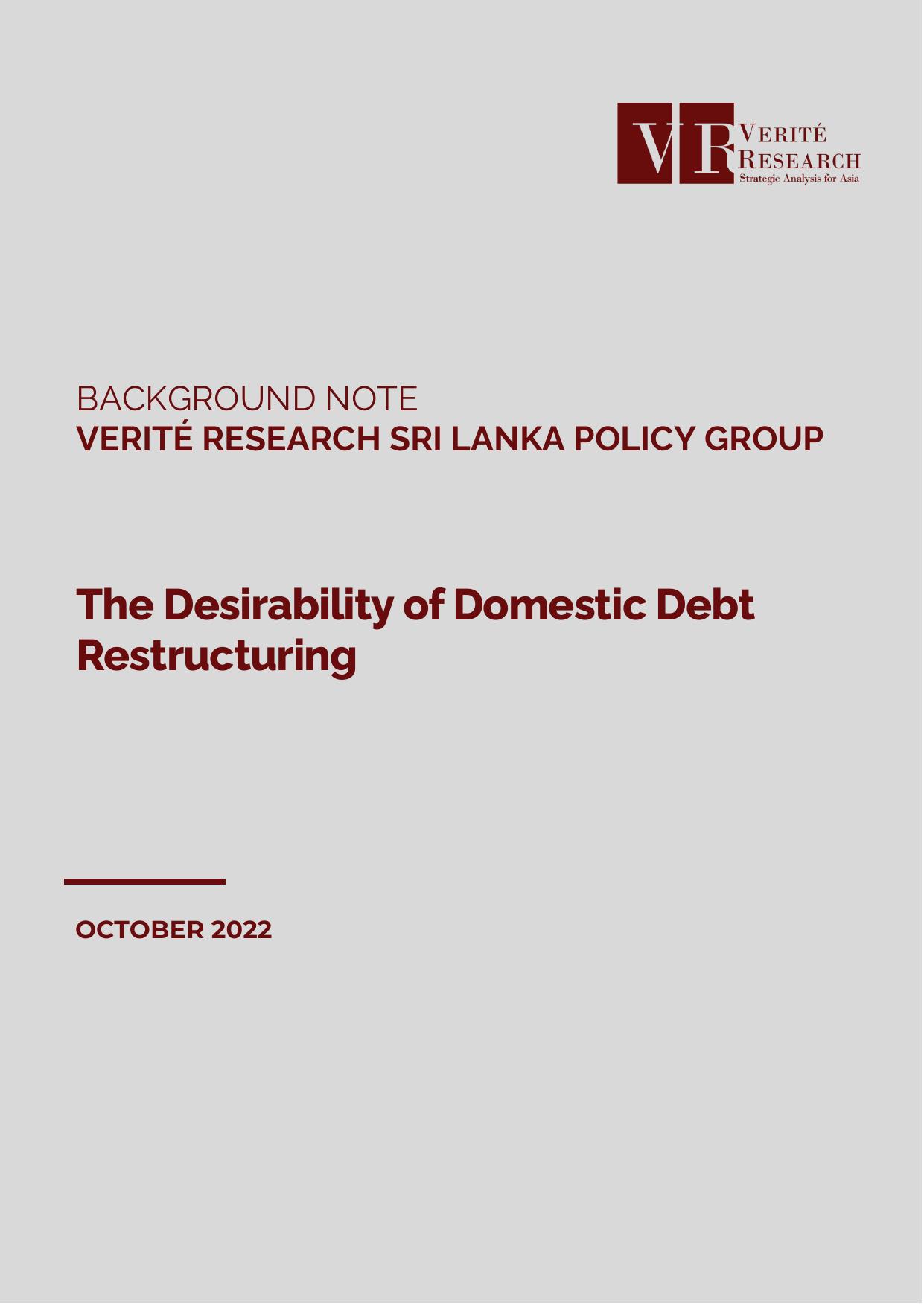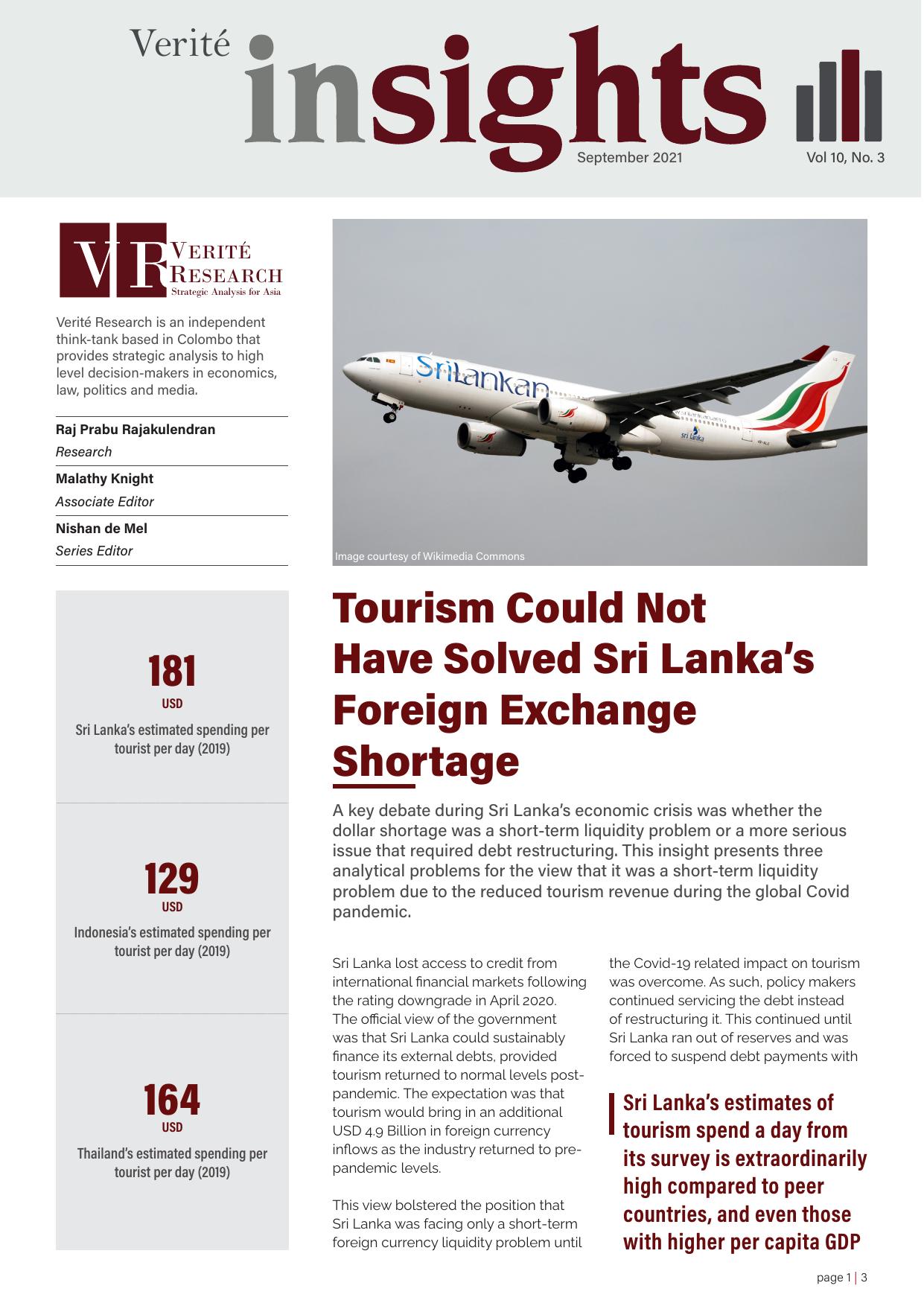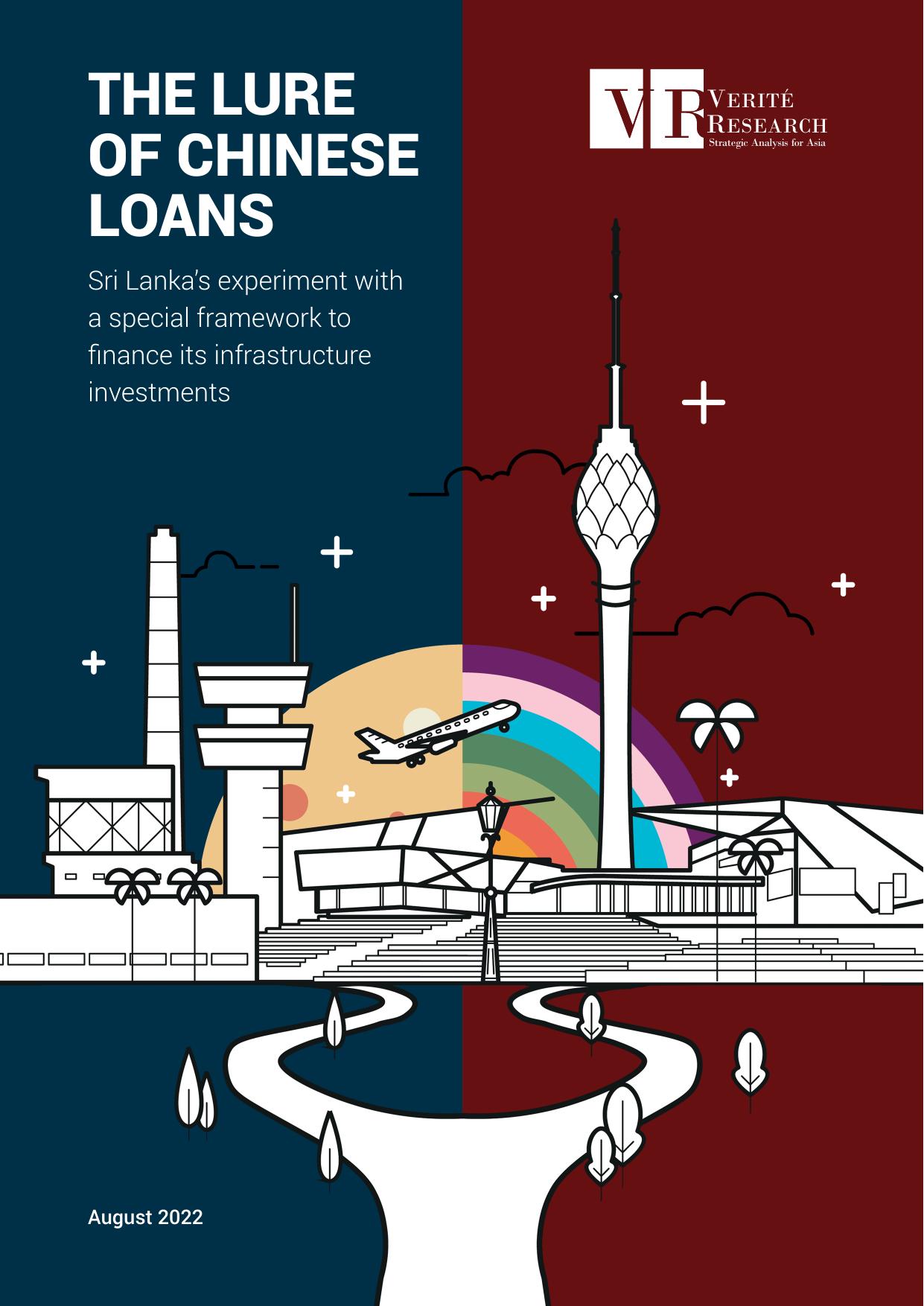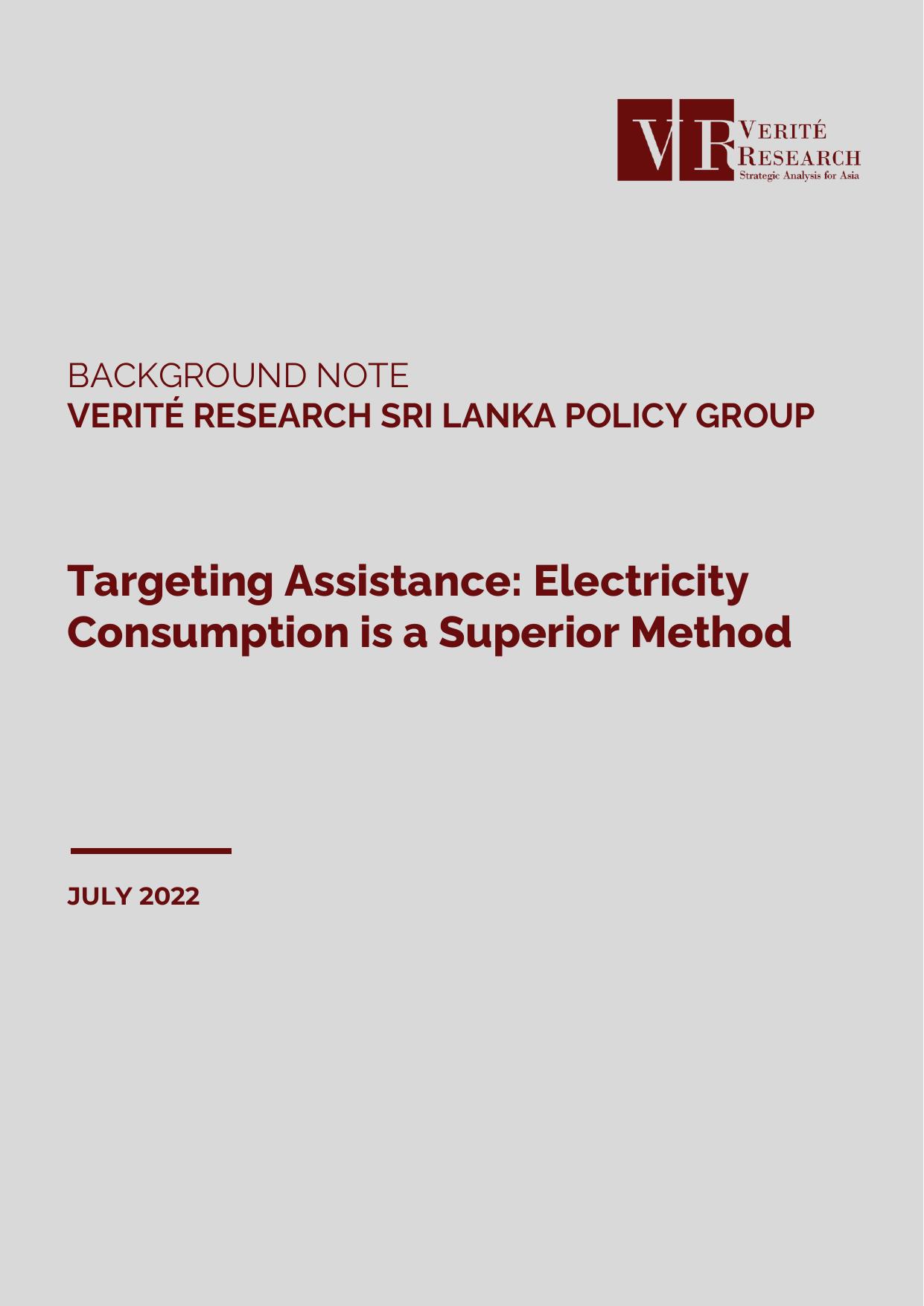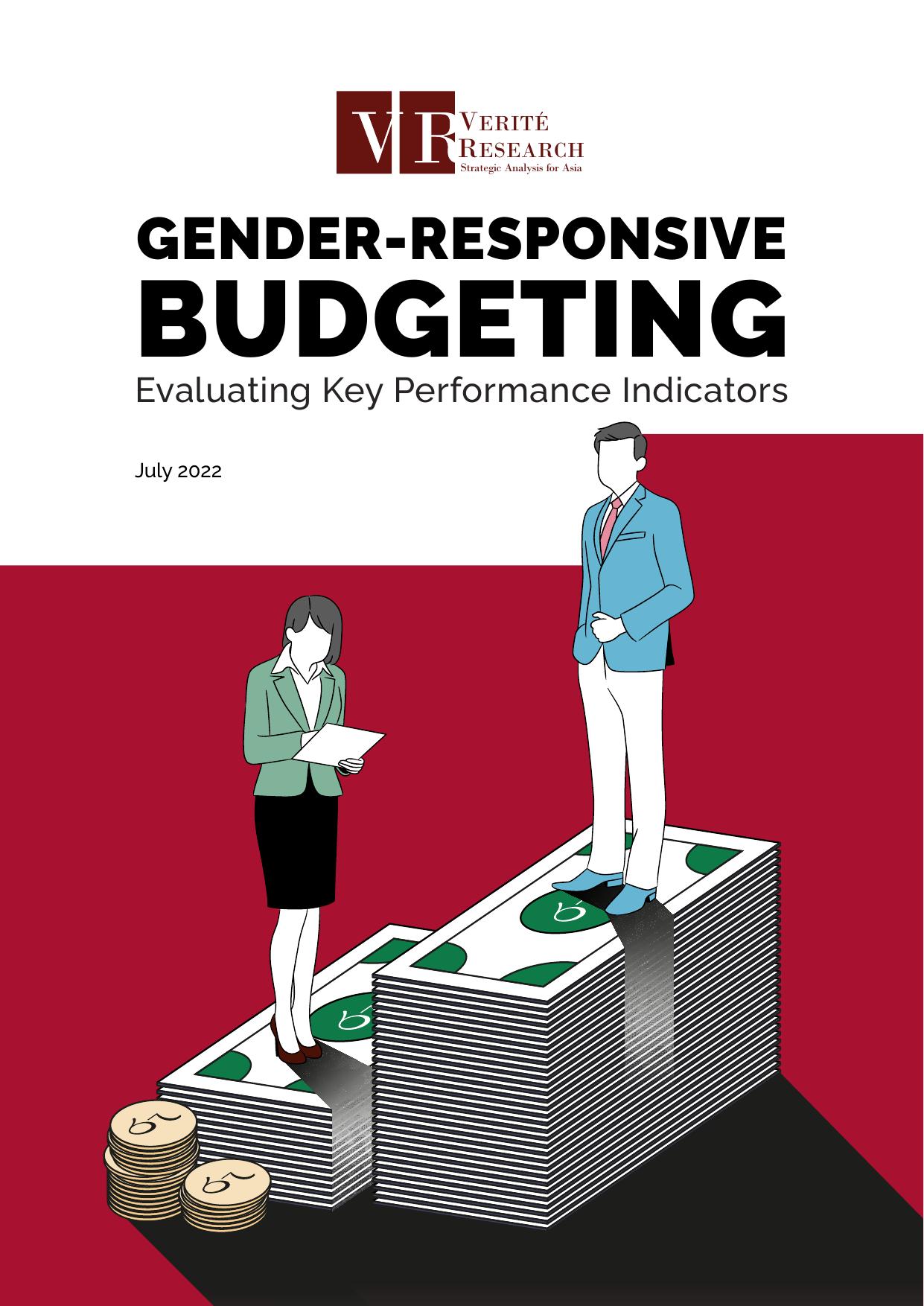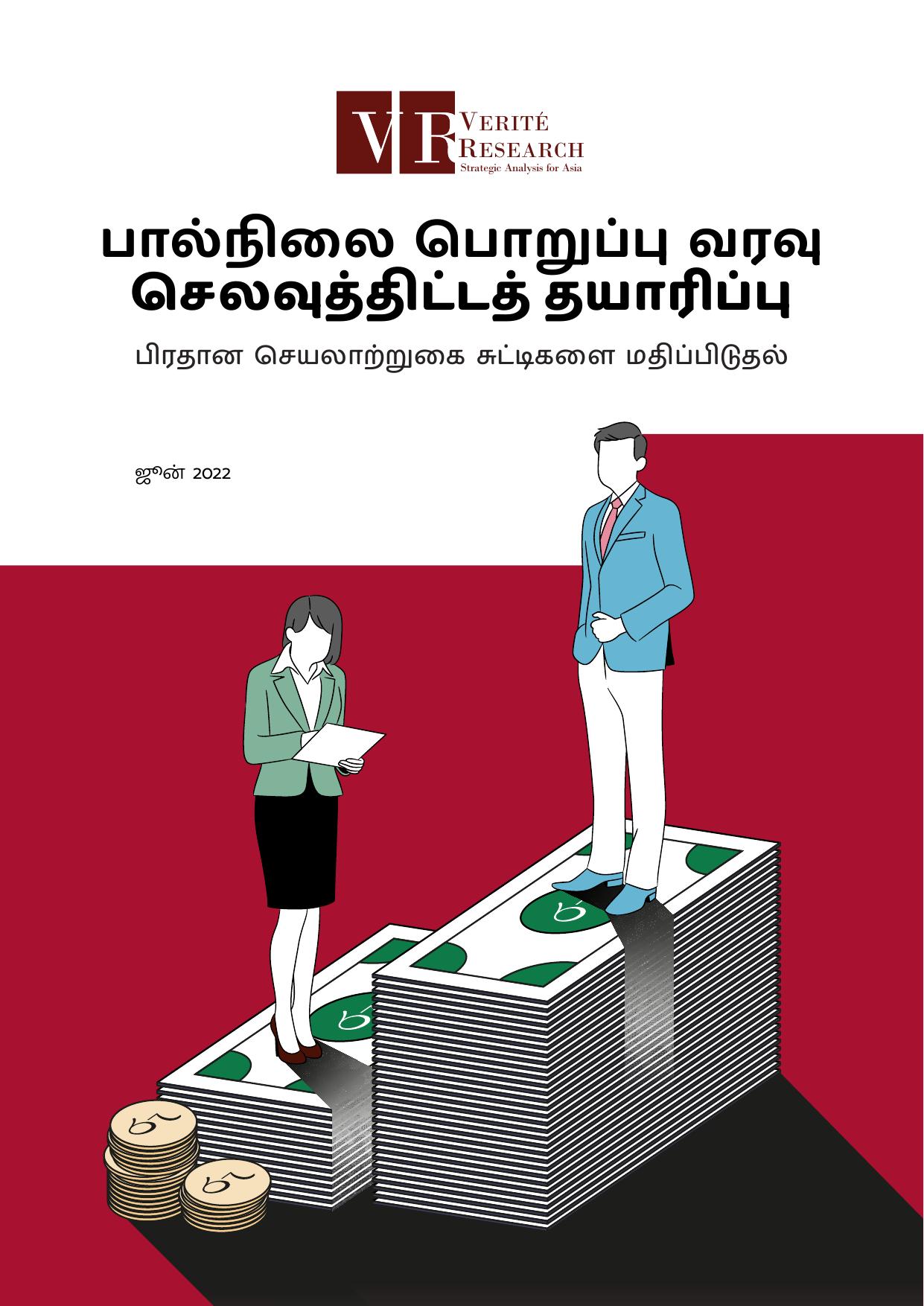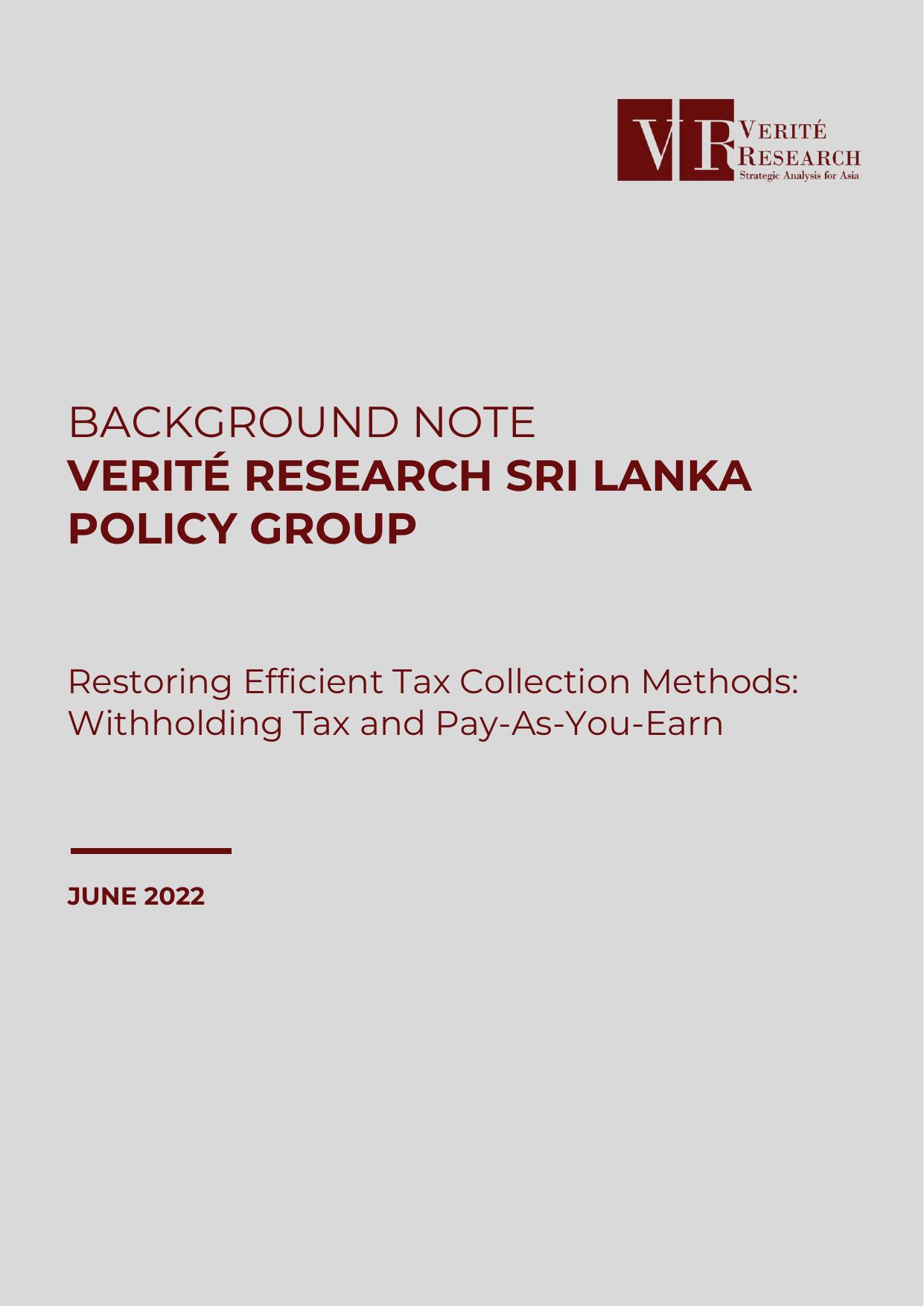ශ්රී ලංකාව තුළ ස්ත්රී පුරුෂ සමාජභාවයට අනුකූල වූ අයවැයකරණය ක්රියාත්මක කිරීම සම්බන්ධයෙන් ශ්රී ලංකා රජය අත්කර ගෙන ඇති අසාර්ථකත්වය මෙම වාර්තාව මගින් ඉස්මතු කෙරේ. රාජ්ය ප්රතිපත්ති සැලසුම් කිරීම දුර්වල වීම හේතුවෙන් සැලසුම් ක්රියාත්මක කරන ආයතන අතර වගවීම දුර්වල වන ආකාරය දක්වන සවිස්තරාත්මක සිද්ධි අධ්යයනයක් ලෙස ස්ත්රී පුරුෂ සමාජභාවයට පදනම් කරගත් ප්රධාන කාර්ය සාධන දර්ශකවලට අදාළ වැඩසටහන සැලකිය හැක. අයවැය ප්රතිපත්ති ක්රියාවට නැංවීමට පෙර මනාව නිර්වචනය කරන ලද රාමු සහ නිසි අධීක්ෂණ යාන්ත්රණයන් ක්රියාත්මක වන බව සහතික කරමින් හොඳ විශ්ලේෂණයක් සිදු කිරීමේ වැදගත්කම මෙම වාර්තාව මගින් අවධාරණය කෙරේ.
Sri Lanka faces a challenge to emerge from the continuing crisis. This background note argues that domestic debt restructuring (DDR) provides four benefits critical for the economy and country to emerge from the present crisis stronger and more resilient than before. First, DDR provides a pathway toward solvency for the Government of Sri Lanka. Second, it provides the foundations for the stability of the economy (macro stability). Third, it reduces the likelihood of needing subsequent sovereign debt restructuring, and fourth, it facilitates the equitable sharing of the burden of the costs of the crisis.
A key debate during Sri Lanka’s economic crisis is whether the current dollar shortage is a short-term liquidity problem or a more protracted and systemic issue that requires debt reduction. This insight responds to the view that the dollar shortage is a short-term liquidity problem primarily caused by reduced tourism revenue since the onset of COVID-19. As this insight describes, there are three reasons to be skeptical of this argument.
Concerns about Sri Lanka losing GSP+ concessions resurfaced with the EU parliament passing a resolution on June 10th, 2021, calling the EU Commission and the European External Action Service (EEAS) to use GSP+ as leverage to push for the repeal or replacement of the Prevention of Terrorism Act (PTA). For Sri Lanka, a major area of concern is the impact of the above on apparel exports to the EU, a key beneficiary of the concessions. Apparel contributes the most to Sri Lanka’s export revenue, accounting for 40-45% of the country’s total exports and the EU is the second largest market for Sri Lankan apparel after the USA, making up 42% of Sri Lanka’s total apparel exports between 2015-2019.
2019 දී රජය විසින් දුම්වැටිවල බදු සහ මිල නියම කිරීම, දර්ශකයකට අනුව සකසන ලද සුත්රයක් මත පදනම්ව සිදු කිරීමේ ප්රතිපත්තියන් හඳුන්වාදෙනු ලැබිණි. එම ප්රතිපත්තිය ක්රියාත්මක කිරීමට අමතක වීමේ පිරිවැය ඉහළ ය: 2020 සිට 2023 දක්වා කාලය තුළ රුපියල් බිලියන 85ක අහිමි වූ අත්හරින ලද ආදායම එහි ප්රතිඵලය වන අතර 2023 දී තවත් බිලියන 45ක් එනිසා අහිමි වනු ඇත.
China was the leading provider of external finance to Sri Lanka for infrastructure development during 2010-2016 accounting for 37% of the total. Sri Lanka borrowed USD 5,895 million from China for infrastructure development during this period. More than half of these loans from China (53%) came through a special regulatory framework set up in 2010, enabling the government to entertain unsolicited proposals (USPs) for public funded infrastructure projects circumventing the normal competitive procurement process. This research paper analyses the design and the actual practice of this special regulatory framework. The analysis aims to assess the extent to which the design and the actual execution of the special framework facilitated the realisation of its intended objectives.
As Sri Lanka’s crisis continues, up to 50% or more of the population is likely to need state support, however current targeting through Samurdhi reaches just about a quarter of all households and only 40% of the poorest individuals. As such, this background note by the Verité Research Sri Lanka Economic Policy Group recommends household electricity use as a determinant of eligibility for welfare benefits.
This report highlights the failure of the Sri Lankan government in implementing gender responsive budgeting in Sri Lanka. The case of gender KPIs provides a detailed case study of how poor planning of government policies can lead to poor accountability among implementing agencies. The report highlights the importance of conducting good analysis, ensuring that well-defined frameworks and proper oversight mechanisms are in place before proceeding to implement budgetary policies.
இந்த அறிக்கை, இலங்கையில் பால்நிலை பொறுப்பு வரவுசெலவுத் திட்டத்தை நடைமுறைப்படுத்துவதில் இலங்கை அரசாங்கத்தின் தோல்வியை எடுத்துக்காட்டுகிறது.
This note by the Verité Research Sri Lanka Economic Policy Group estimates the additional revenue that can be collected from reinstating in Sri Lanka two methods of efficient tax collection that were discontinued in 2020. That is: the withholding tax (WHT) and the pay-as-you-earn (PAYE) methods of tax collection. Without any change in the current, reduced, tax rates, and a WHT of 10% the additional revenue that can be collected is estimated to be 0.70% of GDP (which is LKR 184.2 billion in 2023).

